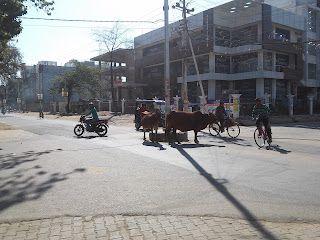In the last few days I have been reflecting on the past year. I don't really like to list my achievements of the past year because I think it encourages an unhealthy comparison mindset. In today's society it's so hard to not forget that the most important is not what you do, but how you are. In the past few days, I co-led an online winter retreat, and in my part I taught analytical meditation. During these sessions we explored the idea of interdependence. I think today's world is more interdependent than ever (a beautiful quote by His Holiness the Dalai Lama about that: "In today’s highly interdependent world, individuals and nations can no longer resolve many of the problems by themselves. We need one another. We must therefore develop a sense of universal responsibility to protect and nurture the global family, to support its weaker members, and to preserve and tend to the environment in which we all live." (from the Tibetan Book of Living and Dying, Chapter 3).
interestingly, many people say they feel disconnected, while objectively speaking we are more connected than ever through the media, and through the evermore complex production chains of goods and services. So why do people feel disconnected? I think it is because we don't spend enough time being and reflecting on our situation. Another answer, offered by Dutch comedian Micha Wertheim last night was that we all consume (social) media that are so hyperpersonalized that we don't have too many common experiences anymore. And we are no longer so used to seeing things that we don't like.
 |
| Picture from Morlaix ballet camp by Michel Le Photography |
Whatever may be the cause, my hope for the next year is that I will get to experience the deep interconnection of ourselves and others more in the coming year. Because I found that when I manage to experience the interconnection of myself with others, nothing can be an enemy anymore, and this reduces my stress so much. When things are overwhelming, it helps me a lot to focus on how they are all part of a web of contingent relationships that allows everything to appear and disappear. Moreover, when i experience the deep interconnection of myself and others, the competitiveness no longer exists either. The challenge is just not forgetting this...
Like with everything, not forgetting means to again and again try to remember, while the rest of life is trying to distract you. First you will forget most of the time, but the more often you remember, the more easily it comes. The trick is also to find "hooks", small reminders. I found a wonderful one recently in ballet class with Broche ballet, where Julie, the teacher said: imagine that you are massaging the floor as you are doing tendus. Thinking in this way frames ballet not as an activity that I do by myself, but rather as a cooperation with the floor, and of course the rest of the world outside it as well.
Every moment of remembering is a moment of mindfulness, and every moment of remembering also makes that moment sacred. Thich Nhat Hanh talks about the notion of interbeing, where we see that the cow that brings the milk that produces the yoghurt that we eat produces the lesson we teach, and therefore the cow is in the lesson. In this way, everything is a seed for everything else. Every breath we take, we breathe in the oxygen produced by the plants, which connect us to the cosmos and to all other beings. If only I would not forget that, and if only more of us would realize that..






















